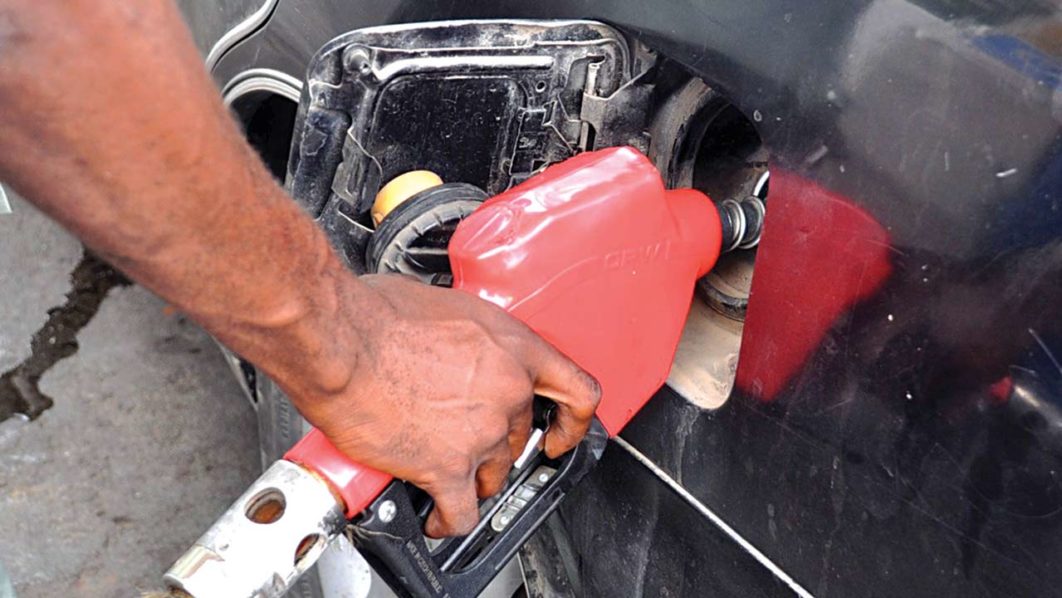The administration of the President, Major General Muhammadu Buhari (retd.), could spend not less than N10.976tn as subsidy on Premium Motor Spirit, popularly called petrol, from when it came to power in 2015 till May 2023.
Already the government has spent about N6.88tn in subsidising the commodity, according to data obtained from the Nigerian National Petroleum Company Limited and the Nigeria Extractive Industries Transparency Initiative.
The President and his party, the All Progressives Congress while campaigning in 2015, kicked against the fuel subsidy scheme that was implemented by the previous administration of the Peoples Democratic Party.
NEITI stated in a report submitted last month to the House of Representatives ad hoc committee investigating the fuel subsidy regime from 2013 to 2022, that petrol was subsidised all through these years.
Figures from the report showed that fuel subsidy gulped N316.7bn in 2015; N99bn in 2016; N141.63bn in 2017; N722.3bn in 2018; N578.07bn in 2019; and N134bn in 2020.
Although the NEITI report did not state the amount spent in 2021 and 2022, figures obtained from NNPC indicated that fuel subsidy jumped to N1.43tn in 2021.
NNPC data also showed that petrol subsidy gulped N2.565tn between January and August this year. The oil company, however, described its subsidy spending as under-recovery.
NNPC said its under-recovery of PMS/value shortfall, otherwise called fuel subsidy, was N210.38bn, N219.78bn, N245.77bn and N271.59bn in January, February, March and April 2022 respectively.
In the months of May, June and July, petrol subsidy gulped N327.07bn, N319.18bn and N448.78bn, respectively. In August this year, subsidy gulped N525.71bn. The total sum spent on PMS subsidy during the eight months was put at N2.565tn.
The amount spent on subsidy in September 2022 has not been released yet by NNPC, as well as what the company could spend in the remaining three months in 2022.
Monthly subsidy
However, going by the global cost of crude oil and the volume of petrol consumed in Nigeria since January, which are the major factors that drive subsidy, the oil company might still spend over N200bn monthly on subsidy.
The least amount that it spent on subsidy in the eight-month period so far captured in 2022 was N210.38bn. This implies that should crude oil prices continue to fluctuate between $90 and $100/barrel, the company’s monthly subsidy spending would not go below N200bn.
Hence, the company would spend not less than N800bn as a subsidy on petrol from September to December 2022.
In the Medium Term Expenditure Framework, the Federal Government proposed to spend N3.3tn on fuel subsidy between January and June 2023.
Early this month, the Minister of Finance, Budget and National Planning, Zainab Ahmed, told members of the House of Representatives that the Federal Government’s projection was to spend N6.72tn on subsidy in 2023.
She, however, said the second option of the government was to keep subsidy till June 2023 and that in this option, fuel subsidy was projected to gulp N3.3tn.
A combination of all the above figures indicated that the Buhari regime could spend nothing less than N10.976tn on petrol subsidy from 2015 and June 2023.
Oil marketers, economists, and global financial institutions, among others, are not comfortable with the persistent rise in Nigeria’s fuel subsidy, amidst the country’s high indebtedness and other economic challenges.
They explained that the fuel subsidy cost over the last 2.5 years represented a lost opportunity to invest in key capital resources to raise the literacy, standard of living and security of the average Nigerian.
“Nigeria’s fuel subsidy programme has continued to limit remittances to the Federal Account Allocation Committee by the Nigerian National Petroleum Company Limited, for distribution to the Federal Government, states and Local Government Areas,” the President, Petroleum Retail Outlet Owners Association of Nigeria, Billy Gillis-Harry told our correspondent.
Civil service compensation
They also stated that civil service compensation and the national minimum wage remained a delicate topic, as the recent strike by the Academic Staff Union of Universities underscored the need to address and lay to rest the civil service compensation and incentives conversation.
The PUNCH, for instance, exclusively reported recently that the Nigerian Economic Summit Group raised concerns of an impending fiscal crisis in Nigeria following the continued rise in fuel subsidy.
It disclosed this in its September 2022 report titled, “The State of Nigeria’s Economy,” stressing that the Federal Government’s huge fuel subsidy spending had been a drain on the country’s revenue despite the rise in crude oil prices in 2022.
The NESG said the government should cut its fiscal deficit to avert an impending fiscal crisis, highlighting the gradual withdrawal of fuel subsidy as one of the measures to achieve this.
“Embark on the gradual phasing out of the fuel subsidy programme,” the economic think-tank told the Federal Government, stressing that sustaining the programme was “disastrous.”
It added, “Aside from taking a clear position on the fuel subsidy issue, the Federal Government must begin the shutting down phase of subsidy programmes to save the country from impending fiscal crisis.
“Understandably, this suggestion will affect the welfare of the citizens but it is only in the short term. On the other hand, the more extended effects of sustaining this programme are disastrous.”
On his part, an Associate Editor of SPE Journal of Economics and Management, Prof. Wumi Iledare, in an interview with The PUNCH, said the Petroleum Industry Act 2021 had indirectly put an end to subsidy but wondered why the Federal Government had failed to obey the law.
He said, “The midstream and downstream regulatory authority has no power in the PIA to set the price of petroleum. The power derives in setting the price of petroleum comes from the Petroleum Act of 1969, which in a way does not exist.
“So, it is illegal to set petrol. Before now, NNPC can decide to do what they call under-recovery, however, the Fiscal Responsibility Act is another thing to contend with when you spend money on behalf of the government.
“But currently, the NNPC Limited is a commercial company and it is meant to make money for investors. So, I don’t see how the government will want the NNPC to sell petrol at a lower price and not recover it. That will be violating the NNPC Limited’s responsibilities and functions in the PIA.”
He added, “You cannot run a government of illegality. Therefore, petrol subsidy in itself is a violation of the PIA. You cannot spend what is not budgeted in the budget. And when you are borrowing money and using it to fund subsidy, that is a misallocation of scarce resources.
“Consider the number of years that the universities have closed down. What are they asking for? Less than N1tn and you are spending over N3tn to subsidise petroleum products in the next budget.
“That is even a violation of the Fiscal Responsibility Act, which says that you cannot fund your budget more than three per cent of your Gross Domestic Product. All of these things have implications on the overall economy.”






2 Comments